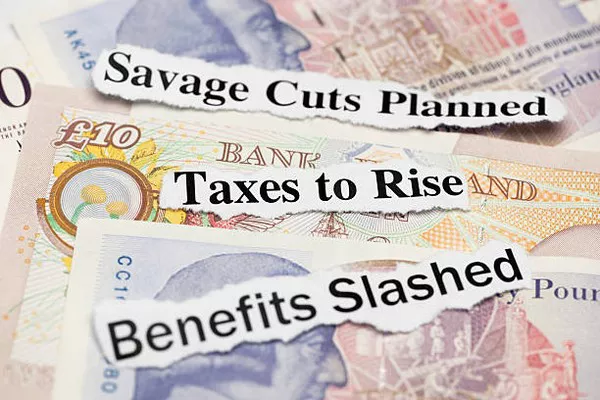In the global landscape, wealth and prosperity are pivotal indicators of a nation’s economic strength and stability. The quest to identify the richest country in the world is a topic of perennial interest, as it offers insights into economic policies, resource allocation, and societal well-being. However, determining the wealthiest nation involves navigating through a complex web of factors, including GDP per capita, natural resources, innovation, infrastructure, and overall standard of living. In this article, we embark on a comprehensive exploration to unravel the enigma surrounding the title of the richest country in the world.
Understanding Wealth Metrics
Before delving into specific rankings, it’s essential to comprehend the various metrics used to measure a country’s wealth. Gross Domestic Product (GDP), GDP per capita, and Gross National Income (GNI) are among the most commonly employed indicators. GDP represents the total monetary value of all goods and services produced within a country’s borders in a specific time period. GDP per capita divides the GDP by the population, providing a per-person average income. GNI encompasses GDP along with income earned from overseas investments, offering a broader perspective on a nation’s economic health.
Richest Countries by GDP
Based on GDP alone, the United States has traditionally held the top position as the world’s wealthiest country. Its robust economy, driven by diverse industries such as technology, finance, and healthcare, has consistently propelled it to the forefront of global wealth rankings. Following closely behind are China and Japan, with their massive populations and thriving manufacturing sectors contributing significantly to their economic prowess. However, GDP alone might not offer a complete picture, as it doesn’t account for factors like income inequality or distribution of wealth.
GDP Per Capita Rankings
When evaluating wealth on a per-person basis, GDP per capita becomes a crucial metric. Luxembourg often emerges as the leader in this regard, owing to its small population and highly developed financial services sector. Qatar and Singapore also feature prominently, benefitting from abundant natural resources and strategic geographic locations, respectively. Scandinavian countries like Norway and Switzerland consistently rank high due to their strong social welfare systems, high-quality healthcare, and education.
Incorporating Quality of Life Factors
While economic indicators provide valuable insights, they don’t capture the full spectrum of a nation’s prosperity. Quality of life factors, including healthcare, education, safety, and environmental sustainability, play a pivotal role in determining overall well-being. Countries like Norway and Denmark excel in these areas, boasting high life expectancy, low crime rates, and a strong emphasis on environmental conservation. Additionally, factors like political stability, social cohesion, and access to basic amenities contribute significantly to a nation’s richness beyond mere financial metrics.
Natural Resource Endowment
The abundance and strategic value of natural resources can significantly influence a country’s wealth. Nations rich in oil, gas, minerals, or arable land often leverage these assets to bolster their economies. Saudi Arabia and Russia, for instance, are major exporters of oil and gas, providing substantial revenue streams for government coffers. Australia benefits from vast reserves of coal, iron ore, and natural gas, driving its economic growth and export revenues. However, reliance on finite resources poses sustainability challenges and can lead to economic volatility in the long term.
Innovation and Technological Advancement
In today’s digital age, innovation and technological prowess are increasingly becoming key determinants of a nation’s wealth. Countries fostering vibrant startup ecosystems, investing in research and development, and embracing cutting-edge technologies are positioning themselves for sustained economic growth. The United States, home to Silicon Valley and a myriad of tech giants, leads the way in innovation and entrepreneurship. Meanwhile, countries like South Korea and Israel punch above their weight in terms of technological innovation, driving economic diversification and global competitiveness.
Global Economic Dynamics
The interconnectedness of the global economy means that fluctuations in one region can have ripple effects worldwide. Economic crises, trade wars, geopolitical tensions, and pandemics can disrupt established wealth patterns and reshape the global economic landscape. The COVID-19 pandemic, for example, exposed vulnerabilities in supply chains, strained healthcare systems, and triggered recessions across the globe. While some countries weathered the storm better than others, the crisis underscored the importance of resilience and adaptability in maintaining economic prosperity.
Conclusion
Identifying the richest country in the world is a multifaceted endeavor that goes beyond simplistic economic metrics. While GDP and GDP per capita offer valuable insights, they must be considered alongside factors like quality of life, natural resource endowment, innovation, and global economic dynamics. Moreover, wealth should be viewed not only in terms of financial resources but also in terms of societal well-being, environmental sustainability, and future resilience. As we navigate an increasingly complex and interconnected world, understanding the nuances of wealth and prosperity is essential for shaping policies and fostering inclusive growth on a global scale.


